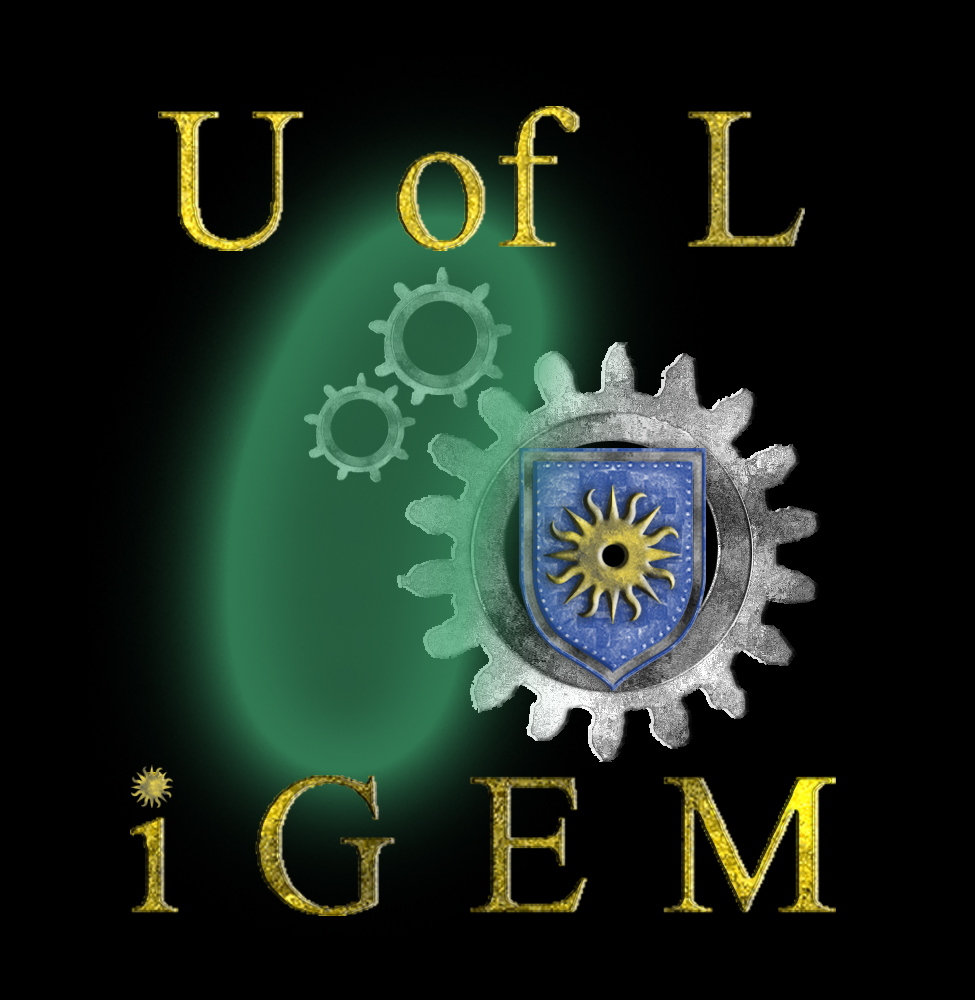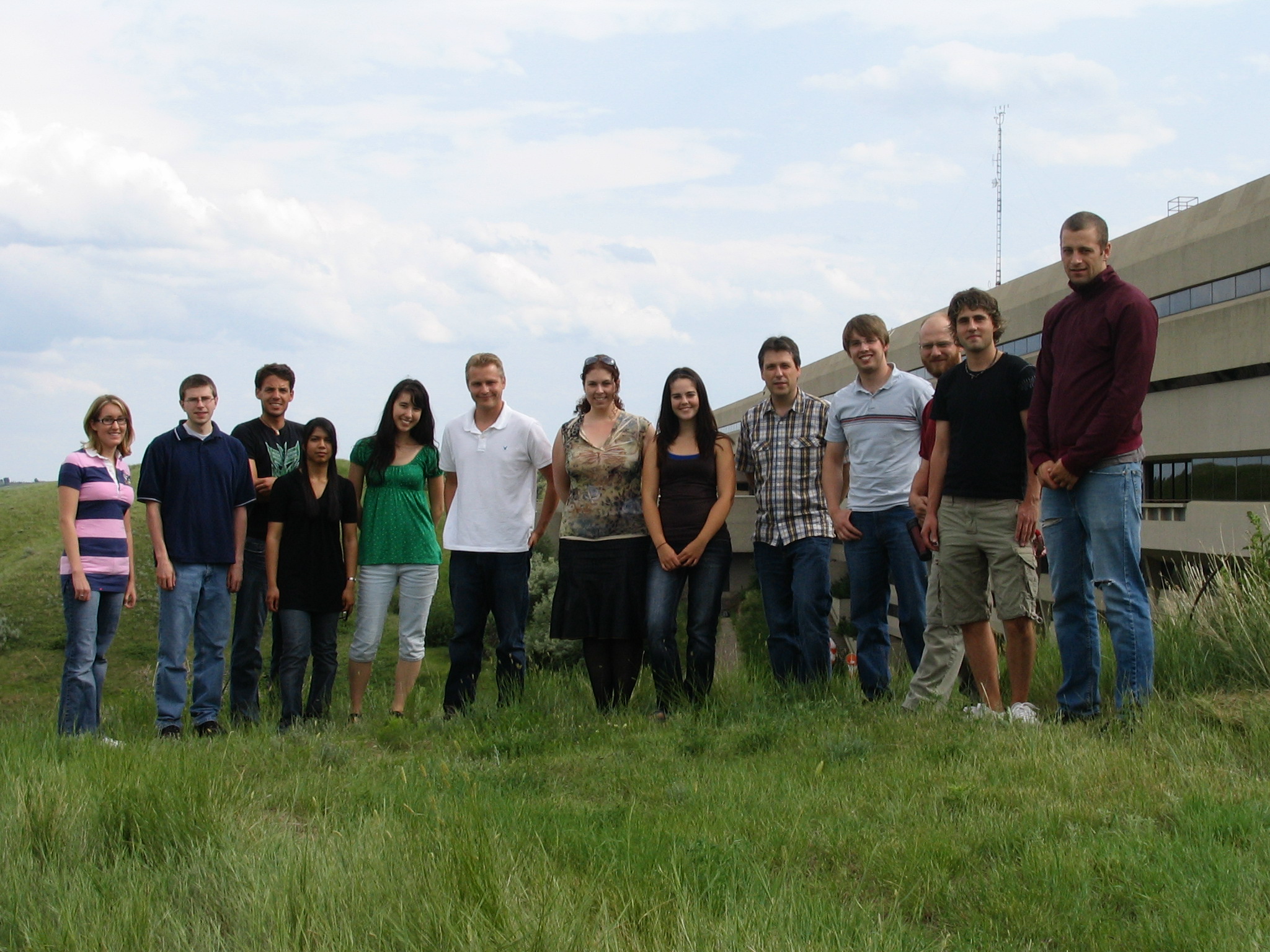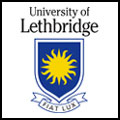Team:University of Lethbridge
From 2008.igem.org
(Prototype team page) |
(added bit about CCS team) |
||
| (29 intermediate revisions not shown) | |||
| Line 1: | Line 1: | ||
| - | < | + | <div style="background-color:#000000; color:white"> |
| - | + | {| align="center" style="background-color:#000000; color:white" | |
| - | + | ||
| - | + | ||
| - | + | ||
| - | + | ||
| - | + | ||
| - | + | ||
| - | + | ||
| - | + | ||
| - | + | ||
| - | + | ||
| - | + | ||
| - | + | ||
| - | + | !align="center"|[[Image:UofLteamlogo.jpg|150px]] | |
| + | !align="center"|<span class="plainlinks" height:3px > | ||
| + | [{{SERVER}}{{localurl:Team:University_of_Lethbridge|Home}} https://static.igem.org/mediawiki/2008/6/65/UofLhomebutton.jpg] | ||
| + | </span> | ||
| + | !align="center"|<span class="plainlinks" > | ||
| + | [{{SERVER}}{{localurl:Team:University_of_Lethbridge/Team}} https://static.igem.org/mediawiki/2008/4/41/UofLteambutton.jpg] | ||
| + | </span> | ||
| + | |||
| + | !align="center"|<span class="plainlinks" > | ||
| + | [{{SERVER}}{{localurl:Team:University_of_Lethbridge/Project}} https://static.igem.org/mediawiki/2008/e/e9/UofLprojectbutton.jpg] | ||
| + | </span> | ||
| + | |||
| + | !align="center"|<span class="plainlinks" > | ||
| + | [{{SERVER}}{{localurl:Team:University_of_Lethbridge/Parts}} https://static.igem.org/mediawiki/2008/2/28/UofLpartsbutton.jpg] | ||
| + | </span> | ||
| + | |||
| + | !align="center"|<span class="plainlinks" > | ||
| + | [{{SERVER}}{{localurl:Team:University_of_Lethbridge/Modeling}} https://static.igem.org/mediawiki/2008/a/af/UofLmodelingbutton.jpg] | ||
| + | </span> | ||
| + | |||
| + | !align="center"|<span class="plainlinks" > | ||
| + | [{{SERVER}}{{localurl:Team:University_of_Lethbridge/Notebook}} https://static.igem.org/mediawiki/2008/0/0e/UofLnotebookbutton.jpg] | ||
| + | </span> | ||
| + | |||
| + | !align="center"|[[Image:UofLteamlogo.jpg|150px]] | ||
| - | |||
| - | |||
| - | |||
| - | |||
| - | |||
| - | |||
| - | |||
| - | |||
| - | |||
| - | |||
|} | |} | ||
| - | |||
| - | + | ==<span style="background-color:#000000; color:white">About Us</span>== | |
| - | !align="center"|[[Team:University_of_Lethbridge|Home] | + | [[Image:UofLteampic.jpg|450px|left]] |
| - | !align="center"|[ | + | We are a university team based in Lethbridge Alberta. |
| - | !align="center"|[ | + | |
| - | !align="center"|[ | + | ==<span style="background-color:#000000; color:white">Our Project: "Bacuum" Cleaner</span>== |
| - | !align="center"|[ | + | |
| - | !align="center"|[ | + | [[Image:UofLteamlogo.jpg|500px|right]] |
| + | |||
| + | The tailing ponds created when water is used to extract oil from the Alberta tar sands or other mining operations pose a major environmental dilemma. How can we isolate the tailings and byproducts of the extraction process? Despite the efforts of the corporations responsible, chemicals can leech from the ponds into the surrounding ground water and soil. These toxic and often corrosive water beds not only affect the immediate land and water environment but also cause severe repercussions to larger ecosystems as much of the wildlife relies on getting their food and water from the now disrupted bionetwork. The exact composition of tailing ponds is highly complex, often laced with heavy metals and other toxic chemicals, such as aromatic hydrocarbons, and are difficult and expensive to filter or degrade. One powerful example is the high level of mercury in our fresh water fish, stemming from the tailing ponds of gold mining operations and the refinement of chloralkali metals. | ||
| + | |||
| + | It is our goal to create a bacterial vacuum cleaner, or “Bacuum”, which will seek out and degrade a particular harmful hydrocarbon. We intend to use the theophylline riboswitch we worked on last year as a platform for directed evolution to create a novel riboswitch capable of binding a particular aromatic hydrocarbon or class of hydrocarbons. The riboswitch will be used to control expression of the motility protein cheZ in ''Escherichia coli'' at low concentrations, thus directing the bacterium towards local areas of high ligand concentration. At a threshold level, a second riboswitch will be used to activate a pathway capable of metabolizing the aromatic hydrocarbons. Ultimately, the resulting product will be funneled into an anabolic pathway, such as the TCA cycle or fatty acid biosynthesis, from which an alternative fuel source can be produced, thereby turning toxic tailings ponds into a bioreactor with the help of a self-guiding "search and destroy" bacterial operative. | ||
| + | |||
| + | |||
| + | We also worked with the [https://2008.igem.org/Team:Lethbridge_CCS <font color=yellow>Lethbridge Calvin Christian School</font>] iGEM team, introducing their high school team members to basic molecular biology lab techniques. | ||
| + | |||
| + | |||
| + | [https://2007.igem.org/Lethbridge <font color=yellow>See last year's team page!</font>] | ||
| + | |||
| + | ==<span style="background-color:#000000; color:white">Thanks to our wonderful sponsors!</span>== | ||
| + | |||
| + | {| class=wikitable style="background:transparent; color:white" | ||
| + | |- | ||
| + | |<!--col1-->[[Image:ab_ingenuity.gif|130px]] | ||
| + | |<!--col2-->[[Image:bd_logo.jpg|130px]] | ||
| + | |<!--col3-->[[Image:uleth_logo.jpg|130px]] | ||
| + | |<!--col4-->[[Image:Fisher.jpg|130px]] | ||
| + | |<!--col5-->[[Image:IDT.jpg|130px]] | ||
| + | |<!--col6-->[[Image:Vwr.jpg|130px]] | ||
| + | |<!--col7-->[[Image:Rainin.jpg|130px]] | ||
| + | |||
| + | |- | ||
| + | |||
| + | |<!--col1-->align="center" |[http://www.albertaingenuity.ca/ <font color=yellow> Alberta Ingenuity] | ||
| + | |<!--col2-->align="center" |[http://http://www.bdbiosciences.ca// <font color=yellow> BD Biosciences] | ||
| + | |<!--col3-->align="center" |[http://www.uleth.ca/ <font color=yellow> University of Lethbridge] | ||
| + | |<!--col4-->align="center" |[http://www.fishersci.ca <font color=yellow> Fisher Scientific] | ||
| + | |<!--col5-->align="center" |[http://www.idtdna.com/Home/Home.aspx <font color=yellow> IDT] | ||
| + | |<!--col6-->align="center" |[http://www.vwr.com/index.htm <font color=yellow> VWR] | ||
| + | |<!--col7-->align="center" |[http://www.rainin.com/ <font color=yellow> Rainin] | ||
| + | |||
| + | |}<!--end wikitable--> | ||
| + | ... plus a shout-out to the Tiedje lab at Michigan State University for sending us their pE43 plasmid! | ||
| + | |||
| + | |||
| + | ---- | ||
| + | |||
| + | |||
| + | {| align="center" style="background-color:#000000; color:white" | ||
| + | |||
| + | !align="center"|[[Image:UofLteamlogo.jpg|150px]] | ||
| + | |||
| + | !align="center"|<span class="plainlinks" height:3px > | ||
| + | [{{SERVER}}{{localurl:Team:University_of_Lethbridge|Home}} https://static.igem.org/mediawiki/2008/6/65/UofLhomebutton.jpg] | ||
| + | </span> | ||
| + | |||
| + | !align="center"|<span class="plainlinks" > | ||
| + | [{{SERVER}}{{localurl:Team:University_of_Lethbridge/Team}} https://static.igem.org/mediawiki/2008/4/41/UofLteambutton.jpg] | ||
| + | </span> | ||
| + | |||
| + | !align="center"|<span class="plainlinks" > | ||
| + | [{{SERVER}}{{localurl:Team:University_of_Lethbridge/Project}} https://static.igem.org/mediawiki/2008/e/e9/UofLprojectbutton.jpg] | ||
| + | </span> | ||
| + | |||
| + | !align="center"|<span class="plainlinks" > | ||
| + | [{{SERVER}}{{localurl:Team:University_of_Lethbridge/Parts}} https://static.igem.org/mediawiki/2008/2/28/UofLpartsbutton.jpg] | ||
| + | </span> | ||
| + | |||
| + | !align="center"|<span class="plainlinks" > | ||
| + | [{{SERVER}}{{localurl:Team:University_of_Lethbridge/Modeling}} https://static.igem.org/mediawiki/2008/a/af/UofLmodelingbutton.jpg] | ||
| + | </span> | ||
| + | |||
| + | !align="center"|<span class="plainlinks" > | ||
| + | [{{SERVER}}{{localurl:Team:University_of_Lethbridge/Notebook}} https://static.igem.org/mediawiki/2008/0/0e/UofLnotebookbutton.jpg] | ||
| + | </span> | ||
| + | |||
| + | !align="center"|[[Image:UofLteamlogo.jpg|150px]] | ||
| + | |||
|} | |} | ||
| - | + | ||
| + | </div> | ||
Latest revision as of 00:26, 30 October 2008
About Us
We are a university team based in Lethbridge Alberta.
Our Project: "Bacuum" Cleaner
The tailing ponds created when water is used to extract oil from the Alberta tar sands or other mining operations pose a major environmental dilemma. How can we isolate the tailings and byproducts of the extraction process? Despite the efforts of the corporations responsible, chemicals can leech from the ponds into the surrounding ground water and soil. These toxic and often corrosive water beds not only affect the immediate land and water environment but also cause severe repercussions to larger ecosystems as much of the wildlife relies on getting their food and water from the now disrupted bionetwork. The exact composition of tailing ponds is highly complex, often laced with heavy metals and other toxic chemicals, such as aromatic hydrocarbons, and are difficult and expensive to filter or degrade. One powerful example is the high level of mercury in our fresh water fish, stemming from the tailing ponds of gold mining operations and the refinement of chloralkali metals.
It is our goal to create a bacterial vacuum cleaner, or “Bacuum”, which will seek out and degrade a particular harmful hydrocarbon. We intend to use the theophylline riboswitch we worked on last year as a platform for directed evolution to create a novel riboswitch capable of binding a particular aromatic hydrocarbon or class of hydrocarbons. The riboswitch will be used to control expression of the motility protein cheZ in Escherichia coli at low concentrations, thus directing the bacterium towards local areas of high ligand concentration. At a threshold level, a second riboswitch will be used to activate a pathway capable of metabolizing the aromatic hydrocarbons. Ultimately, the resulting product will be funneled into an anabolic pathway, such as the TCA cycle or fatty acid biosynthesis, from which an alternative fuel source can be produced, thereby turning toxic tailings ponds into a bioreactor with the help of a self-guiding "search and destroy" bacterial operative.
We also worked with the Lethbridge Calvin Christian School iGEM team, introducing their high school team members to basic molecular biology lab techniques.
Thanks to our wonderful sponsors!
... plus a shout-out to the Tiedje lab at Michigan State University for sending us their pE43 plasmid!
</div>
 "
"

 ]
]
 ]
]
 ]
]
 ]
]
 ]
]
 ]
]



